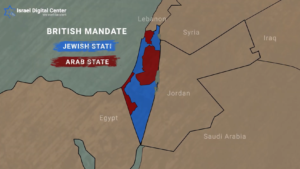Only logged-in users. NO FEES.
at proin vel odio ac. Non auctor massa lobortis vitae in ut. Cursus dictumst interdum ultrices nulla. Semper orci proin molestie condimentum enim. Non nec magna morbi amet nulla. Ullamcorper a pellentesque tortor lectus mus. Malesuada eget a dui sit. Viverra t.
Key Elements of the Agreement – Official Peace, Mutual Interests The agreement established agreed borders, mainly in the Arava, regulated water resource distribution, and gave Jordan a special role in Jerusalem’s holy sites. Israel committed to respecting Jordanian sovereignty and cooperating in security, trade, and tourism. Jordan became the second Arab country, after Egypt (1979), to sign a peace treaty with Israel. The Arab world seethed. Syria and Iraq accused Jordan of treason, Palestinians were furious, and within the kingdom itself – the agreement was met with mixed feelings. Egypt preferred to remain neutral.
Relations Today – Cold Peace Economy and trade grew, but public support for the agreement in Jordan eroded. The Intifadas and conflicts with Palestinians distanced Jordanian public opinion from the idea of warm peace, and relations remained primarily interest-based.
October 7th and Cracks in the Alliance Since the “Iron Swords” war, Jordan has taken a hard line against Israel, condemned its actions in Gaza, and supported Palestinians. But beneath the surface – security cooperation and partnership continue. In April 2024, when Iran launched an unprecedented missile attack toward Israel, Jordan helped thwart the threat by shooting down missiles that entered its airspace – a move that reflected its strategic considerations and commitment to regional stability.
Legacy of the Agreement – Stable or in Danger? The peace agreement with Jordan is a reminder that the State of Israel is willing and prepared to reach agreements even with enemy states. The State of Israel is not fighting Islam or Arabs; it is fighting terrorist organizations and states that have made it their goal to eliminate the State of Israel.





